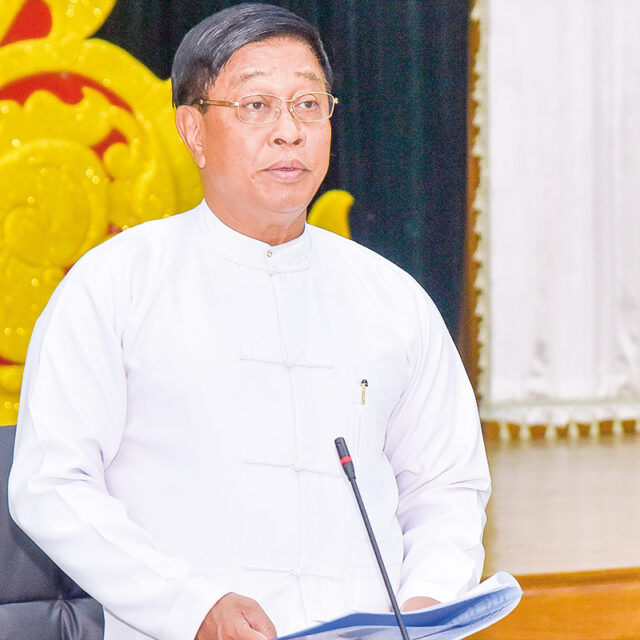Improving the education sector is essential for the development of a country, with a direct impact on enhancing educational qualifications and alleviating poverty. Development efforts in education improve human resources and reduce poverty. Despite various challenges, it is crucial that all school-age children have the opportunity to complete basic education.
Developing countries worldwide face educational issues, with poverty being a significant factor causing students to drop out of school. Many children are forced to become income earners, missing out on daily learning due to the need to meet basic needs. Surveys indicate that despite Myanmar’s implementation of compulsory education, the student dropout rate from primary to high school levels has remained high for many years.
The 2019 interim census reported that Myanmar’s population above five years old was 46.463 million. Of this group, 8.1 per cent had never attended school. Among the 25.169 million people above 25 years old, over 900,000 had no school education, accounting for 3.8 per cent. Additionally, 49.47 per cent of the population had experienced pre-primary and primary education, while 21.72 per cent had attended middle school. High school completion was achieved by 13.3 per cent of the population, and 11.4 per cent had graduated from universities.
A high dropout rate negatively impacts a country’s development. Educational experts attribute this issue to economic decline, family conflicts, armed conflicts in the country, inadequate transportation, school attendance challenges, low intelligence quotient of students, outdated curriculums, and ineffective examination systems. As such, relevant governments and educational authorities need to address weak points in the education sector for its long-term development in harmony with the life and nature of students.
According to the Universal Declaration of Human Rights, everyone has the right to education. The 1989 Convention on the Rights of the Child mandates that all countries must provide opportunities for individuals to access higher education. The United Nations’ Sustainable Development Goal-4 aims to ensure inclusive and equitable quality education and promote lifelong learning opportunities for all by 2030. Therefore, focusing on education is vital for the sustainable development of all nations.
Investment in the education sector is crucial for the development of human resources. Only when people are educated will they have a wide range of knowledge, rationality and farsightedness. As such, everybody needs to strive for a reduction of the student dropout rate in the education sector in order to improve the living standard of the people and the development of the nation.
Mitigate student dropout rate in education sector
- July 24, 2024
- 6














